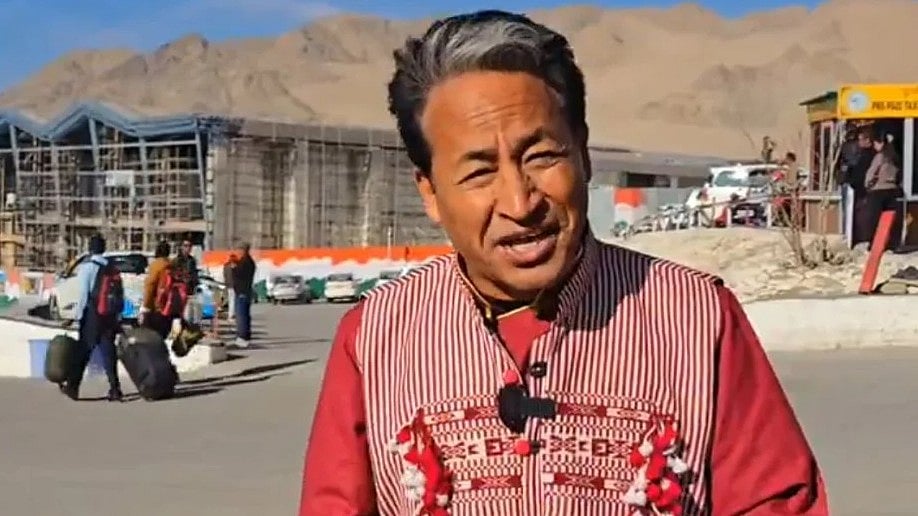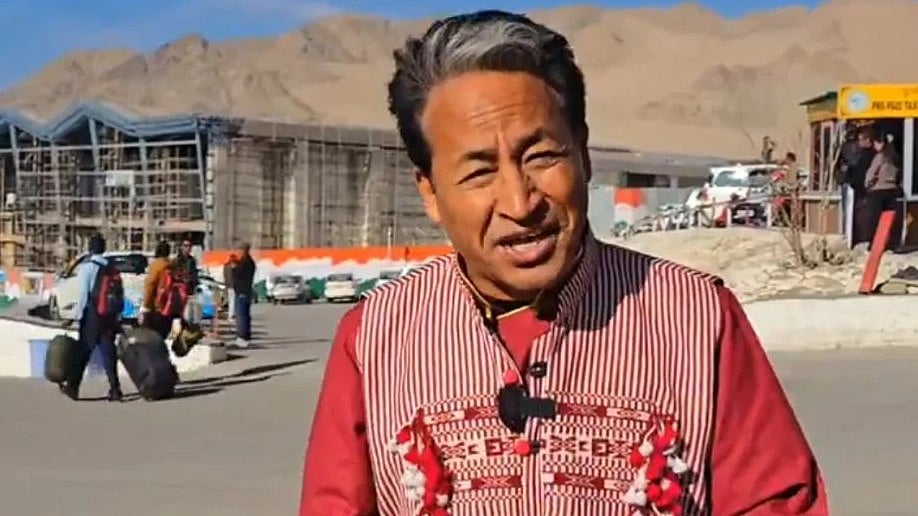The national alliance of people’s movements (NAPM) has strongly condemned the arrest of renowned climate activist Sonam Wangchuk under the National Security Act (NSA), calling it a blatant attempt to stifle a peaceful, democratic movement. The alliance has demanded Wangchuk’s immediate release, a judicial inquiry into the killing of four civilians, and urgent dialogue on statehood and Sixth Schedule protection for the region.
Background of Wangchuk’s Protest
The arrest of Wangchuk, who has been a prominent voice in the ongoing non-violent movement for Ladakh’s constitutional rights, follows weeks of peaceful protests and a hunger strike he led to demand greater autonomy and environmental safeguards. Though he publicly denounced violence and ended his fast on the 15th day, he was arrested under NSA and shifted to Jodhpur.
Allegations Against Government Response
On Saturday, NAPM said that blaming Wangchuk for the violence is not only false but dangerously unjust, in a statement, and alleged that the government's response of firing on civilians and silencing peaceful dissent is pushing the region towards deeper alienation and unrest.
The alliance highlighted the long-standing grievances of the Ladakhi people, including the demand for Sixth Schedule status under the Constitution to protect land, culture, and resources, full statehood for Ladakh to ensure democratic governance, local employment mechanisms including a Ladakh-specific public service commission, and parliamentary representation for both Leh and Kargil.
Demands of NAPM
The alliance demanded the union government immediately release Wangchuk along with withdrawal of NSA charges and end repression on Ladakhi institutions and civil society groups. It has also demanded opening a conclusive dialogue with LAB, KDA, and other stakeholders on Sixth Schedule and statehood. It also demanded an independent judicial inquiry into the police firing and deaths of four civilians along with medical care and compensation for the injured and bereaved families, including government jobs for next of kin.
Regional Support and Environmental Concerns
These demands were backed by both the Leh Apex Body (LAB) and the Kargil Democratic Alliance (KDA) in a rare show of unity across the region. While NAPM said that Ladakh has historically served as a strategic and cultural bastion of India’s northern borders, it warned that unregulated development, ecological damage, and the imposition of top-down policies are now threatening the region’s fragile Himalayan ecosystem and the rights of its people.
Global Significance of Ladakh
As the United Nations prepares to observe 2025 as the International Year of Glaciers’ Preservation, NAPM urged the Indian government to recognise Ladakh’s global ecological significance and its people’s right to shape their own future.




.jpg)





